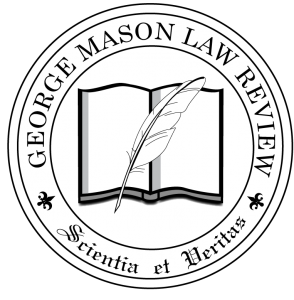The Consumer Welfare  Standard: From The Antitrust Paradox to Hipster Antitrust
Standard: From The Antitrust Paradox to Hipster Antitrust
Recently, there have been a series of challenges aimed at “reinvigorating” antitrust enforcement agencies and institutions and calling into question the economic approach to antitrust. The “Hipster Antitrust” movement represents a departure from the longstanding nonpartisan consensus that rigorous economic analysis is a key ingredient to robust competition policy – a consensus that finds its roots in Robert Bork’s, The Antitrust Paradox. This latest challenge to the modern antitrust paradigm calls for the rejection of the consumer welfare standard and the incorporation of non-economic considerations, such as fairness, income inequality, and other broader social issues, into standard antitrust analysis. This symposium highlighted these current debates in the context of their application in merger policy, common ownership and passive investment, vertical restraints, and the goals of antitrust. Participants discussed the new challenges to the modern consumer welfare oriented antitrust paradigm and suggested any necessary changes moving forward for antitrust enforcement.
Panel 1: Merger Policy and the Consumer Welfare Standard: Time for a Change?
Panelists:
Wayne Dale Collins, Of Counsel, Shearman & Sterling LLP
Paul T. Denis, Partner, Dechert LLP
William A. Galston, Ezra K. Zilkha Chair and Senior Fellow in Governance Studies, The Brookings Institution
Michael Kades, Director of Markets and Competition Policy, Washington Center for Equitable Growth
Howard Shelanski, Partner, Davis Polk & Wardwell LLP and Professor of Law, Georgetown University Law Center
Moderator:
Bruce C. McCulloch, Partner, Freshfields Bruckhaus Deringer LLP
Panel 2: Common Ownership and Passive Investments: The Next Frontier for Section 7?
Panelists:
Susan A. Creighton, Partner, Wilson Sonsini Goodrich & Rosati
Jonathan Klick, Professor of Law, University of Pennsylvania Law School
Daniel P. O’Brien, Executive Vice President, Compass Lexecon
Isabel Tecu, Associate Principal, Charles River Associates
Moderator:
Thomas A. Lambert, Wall Chair in Corporate Law and Governance and Professor of Law, University of Missouri School of Law
Luncheon Keynote Address
Keynote Speaker:
Luke M. Froeb, Deputy Assistant Attorney General for Economics, Antitrust Division, US Department of Justice
Panel 3: Revisiting Vertical Antitrust Enforcement
Panelists:
Jonathan B. Baker, Research Professor of Law, American University Washington College of Law
Jonathan B. Sallet, Partner, Steptoe & Johnson LLP
Michael G. Vita, Acting Director of the Bureau of Economics, Federal Trade Commission
Paul L. Yde, Partner, Freshfields Bruckhaus Deringer LLP
Moderator:
Bruce H. Kobayashi, Associate Dean for Research & Faculty Development and Professor of Law, George Mason University Antonin Scalia Law School
Panel 4: What are the Goals of Antitrust? What Should They Be?
Panelists:
Allen Grunes, Founder, The Konkurrenz Group
Diana L. Moss, President, American Antitrust Institute
Jan Rybnicek, Senior Associate, Freshfields Bruckhaus Deringer LLP
Hal Singer, Principal, Economists Incorporated, Senior Fellow, Regulatory Studies Center, The George Washington University, and Adjunct Professor, McDonough School of Business, Georgetown University
Moderator:
Joshua D. Wright, University Professor and Executive Director, Global Antitrust Institute, George Mason University Antonin Scalia Law School
